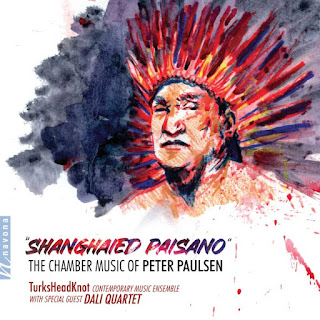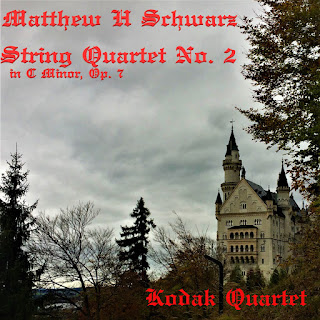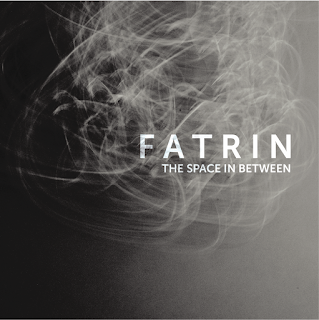Don Freund - Urban Pastorale
Don Freund - Urban Pastorale
Urban Pastorale is yet another work which is unsurvivable in the legitimate musical world, and will hopefully not cause musicians or audiences to suffer through subsequent performances.
Urban Pastorale is an almost thirty-minute long 'symphony' in five movements by composer Don Freund. Freund was commissioned by the Jacobs School of Music at Indiana University, where he is also professor of music composition. The work was premiered on March 6 by the IU Symphony Orchestra led by Thomas Wilkins. Freund calls for an incredibly large orchestra, writing for triple woodwinds (with multiple doublings), two saxophonists, four horns, three trumpets (first doubles flugelhorn), three trombones, a euphonium, and tuba. He also writes for quite the menagerie of percussion, calling for four players and a separate timpanist, each in their own sea of instruments, necessitating the first be a steel pan specialist. The expansion of the orchestra gives a more traditionally Americana feel to the music, and enables Freund to parody and draw from music commonly associated with the wind band repertoire.
The opening movement, "Turning Events", also the longest, is described by Freund as a scherzo where "breaths of a bird-call tune and a throbbing quarter-note undercurrent float along a string of variegated escapades." Starting with a scherzo immediately calls into question the overarching symphonic form, especially when Freud directly states that the piece's form is inspired by Beethoven, Berlioz, and Bartók. To the listener, the movement never gets fast nor entertaining enough to be labeled as scherzo, especially with such a pedantic introduction. One could consider the scherzo theme to be introduced at measure 168, which a parallel section occurring at measure 268, which is comprised of unrelated material in the strings and does not occur into around halfway into the movement. The rest of Freud's description is relatively accurate. As heard throughout the entirety of Urban Pastorale, Freud is overly concerned with miniscule timbral and orchestration alterations, akin to his "string of variegated escapades." All it does is make the work sound inconsistent while greatly increasing the difficulty for the performers and conductor.
"Hot Boogie" is a much shorter movement, only being about two minutes in length. Like all mediocre contemporary American composers, Freud feels that it is necessary to poorly appropriate jazz idioms into a classical style, even though it is now the 21st century. The "stream of hard-driving sixteenth notes" create a boring and uninterested texture, and its orchestration would be much better suited to a wind band than a symphony orchestra. The third movement, "Easy Going (mostly)", continues in this vein of disappointing classical 'jazz' music. To be clear, I am all for blending genres and idioms together, but only when done tastefully and successfully. The movement begins with a lyrical melody attempting to be funky, yet fooling no one. Freund does little to develop the melody and simply tosses it around the orchestra, eventually accompanied by a steel pan player in the percussion. These second and third movements, both being short and relatively simple, would function much better if placed together and reorchestrated as an individual piece.
To put it as nice as possible, the fourth movement, "Whistle Tune / Midnight Musing", is simply the most annoying. Freud continues his tradition of grossly over-orchestrating and refusing to develop his musical material. The opening theme is first presented in a solo slide whistle, again a choice which is incredibly demanding on the performer and not at all worth it to the listener. The remainder of the movement does nothing but continually bash the audience over the head with the same theme verbatim until everyone is sick of it. The climax of the movement brings in even more percussion, what Freud labels as junkyard instruments, to be even louder and less musical. In an attempt at balance, Freund finally gives us some slow music, culminating in a reoccurrence of melodies from the first movement.
The fifth and final movement, "Heavy Hits", is labeled as a "joyful head-banging hard rock anthem". While the groovy bassline featuring the low reeds (including the bari saxophone) and strings is catchy, Freud still does little to develop his music in terms other than adding more instruments to the mix. Especially noteworthy are the literal heavy unison hits to close off the entire piece. After giving us a barrage of false endings, the audience uncomfortably sits in silence, unsure as to whether or not the work is finally complete.
One thing about the work is certain, Freund is incredibly lucky to have such a large and influential institution to support him and his music. A professional orchestra would never be able to dedicate the necessary personnel forces or rehearsal time to attempt a piece such as Urban Pastorale. Wilkins and the IU Symphony Orchestra clearly put an enormous amount of effort into making music from mediocrity. Despite the stellar performance, Freund's music is a relic of an academic era thought to ended long ago. Urban Pastorale is yet another work which is unsurvivable in the legitimate musical world, and will hopefully not cause musicians or audiences to suffer through subsequent performances.
Slightly overzealous, Freund includes three separate links to the recording of his work:



Comments
Post a Comment